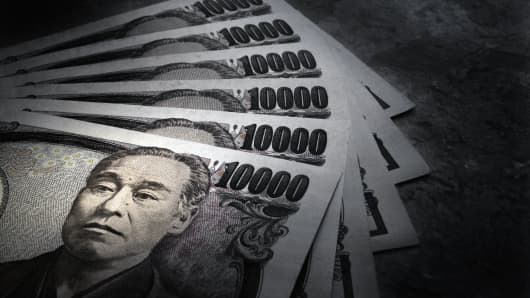Japan will announce its first quarter growth numbers later this week, and there is expectation that the world's third largest economy will deliver a good report card, as "Abenomics" begins to have an impact.
(Watch This: Dangerous to Play Japan on Yen Movements)
Japan's economy is expected to have grown close to 1 percent quarter on quarter in the January-March period, after flat growth in in the previous three months.
A combination of aggressive monetary policy and fiscal stimulus tagged "Abenomics," after Japan's new Prime Minister Shinzo Abe, has lifted sentiment, boosting stocks to record highs and driving the yen lower.
The Japanese currency has depreciated about 30 percent against the U.S. dollar since September last year and was trading around 101.7 on Monday after dipping to a low of 102.15 over the weekend.
(Read More: Conflicting Japan Data—What Are They Telling Us?)
If the yen were to weaken much further domestic households and businesses could start to feel the pressure of increased import costs. Consumers will see a reduction in disposable incomes, while businesses could see their margins hit, said analysts.
"If the yen were to depreciate further to around 120 against the dollar, for example, that level will not only put pressure on households, as their energy costs increase as gas and electricity prices rise, but it will also hurt corporate productivity," said Long Hanhua Wang, Japan economist at RBS.
"Both these elements could push gross domestic product [GDP] down," he added. RBS has forecast Japan's economy to have grown 0.8 percent quarter on quarter over January to March, while a Reuters poll puts growth at 0.7 percent.




